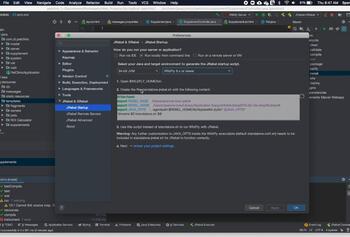
And it should also work with my current technology stack… Sounds pretty cool, doesn’t it?
JREBEL INSTALL CODE
That means that no more long deployment procedures (mvn clean install…) are necessary for simple code changes. JRebel promises faster and much more pleasant Java application development because of mapping the project workspace directly to a running application. Motivated by the talk Do you really get class loaders? from Jevgeni Kabanov devoxx in Antwerpen, I’ve downloaded the demo version of JRebel this evening. You can find some Integration-Javadocs about that on the webpage of zeroturnaround.
JREBEL INSTALL PATCH
I’ve also tried to write an own JRebel plugin to patch the Sling/JCR Classloader, but at the moment it’s not that stable to use it in productivity. We plan to use it in the next couple of weeks and will for sure find some pitfalls… (hopefully not, but you know… 😉 ) With this configuration I can save my java files in Eclipse, reload the page and the changes are immediately viewable.įor now, this configuration isn’t tested in productive work. The parameter -Drebel.packages_exclude=sun.reflect is a kind of a workaround of a JRebel bug, in the newest version it shouldn’t be necessary anymore.

Our basic approach to write components, services, tags and so on is to add all logic (java classes) into a OSGI bundle and deploy that on Felix. It’s based on Apache Sling which uses Apache Felix as OSGI Container and a JSR-283 compliant java content repository to persist it’s content/data. As I’ve mentioned in my last technology post, I’ve now also tried to use JRebel with a WCMS system, namely Day CQ5.3.


 0 kommentar(er)
0 kommentar(er)
